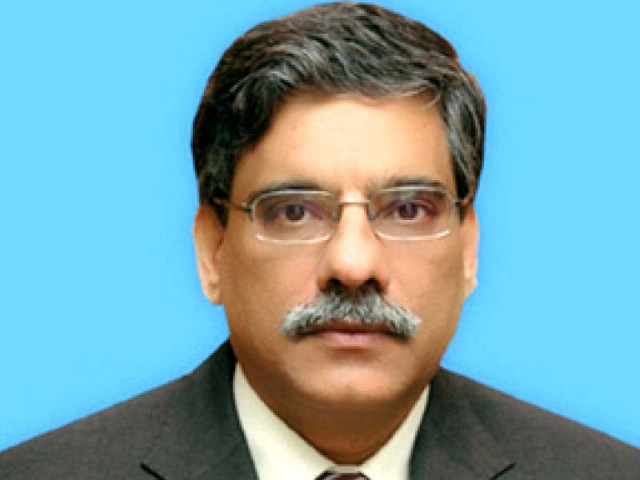Interview: Facelift for civic agency’s image, new chairman’s goal
Says he wishes to change perceptions of CDA through better administration.

When Syed Tahir Shahbaz assumed charge as the Capital Development Authority’s (CDA) chairman on October 2, not many people would have envied his new job.
Shahbaz, a BPS-21 officer who was previously posted as an additional secretary at the prime minister’s secretariat, had a tough task ahead of him.
The civic agency, with its recent record riddled with allegations of irregularities, was in the middle of one of its worst financial crisis - it had failed to pay its electricity dues, some of its development plans were in limbo and it was struggling with the city’s upkeep.
Though it remains to be seen if Shahbaz and his team will pull CDA out of its current quagmire of inaction and negligence, the new chairman seems to have a goal - he wants to transform the civic agency into a trustworthy organisation.
“We want to perform the chartered duties by following rules and regulations in a transparent manner,” he said in an exclusive interview with The Express Tribune.
However, winning the people’s trust would be an uphill task, given that there are certain areas in the city where residents have had to use broken roads for years and where filtration plants supply contaminated water.
The faults within
Perhaps the most difficult task for Shahbaz would be to change the image of the city’s caretakers in the minds of the citizens.
For this purpose, the chairman has fixed CDA’s internal administrative affairs as his top priority. “We have decided to ban new recruitments and develop a new human resource policy based on assessment of needs,” he said. “This will help us get rid of arbitrary appointments and improve scrutiny.”
According to him, the new policy will ensure that no one, including Shahbaz himself, holds discretionary powers on hiring and employees’ transfers. Given CDA’s chequered past of political appointments and internal politics, the plan seems ambitious.
The policy is still in the works, but despite claims to the contrary, a major reshuffle has already taken place. On October 22, the chairman approved postings and transfers of 70 officials, including three director generals, within various CDA directorates. The move, according to the CDA, aimed to improve the civic agency’s administrative efficiency.
Where’s the money?
The chairman is also trying to come up with new ways to increase the civic agency’s revenues.
He thinks one way is to plug the holes in the collection mechanisms of CDA’s municipal administration and fix its land and estate management problems. “We have initiated the computerisation of land records for this purpose,” he said.
Moreover, on October 23, the CDA board decided to replenish its waning bank balance through auctions of commercial plots and by issuing fines to violators of building bylaws.
For now, some saving measures that have been executed include an energy conservation plan and retrieval of 291 cars which were allegedly being used by employees for private purposes.
Housing and development issues
Like his predecessors, Shahbaz hopes to get stalled sectors back on track and resolve the issues of existing sectors.
Islamabad has faced a shortage of housing and amenities over the years. With the population swelling to over 2 million, CDA has failed to develop a single new sector in 23 years.
Responding to a question on the Park Enclave housing project, whose progress has been sluggish at best, he said work would be completed on time.
When informed that the project was supposed to finish in 18 months, of which 15 have already passed, he said the agency will review the project’s progress, insisting that work is being carried out according to plans.
Shahbaz didn’t outrightly dismiss the development plans of his predecessors, such as high-rise construction and coal-based power plants, but suggested caution.
“We are not going to reject previous management’s ideas just because we didn’t originate them. But we have to keep our financial conditions in mind and perform a cost-benefit analysis before committing to those plans,” he said.
Published in The Express Tribune, October 31st, 2012.



















COMMENTS
Comments are moderated and generally will be posted if they are on-topic and not abusive.
For more information, please see our Comments FAQ